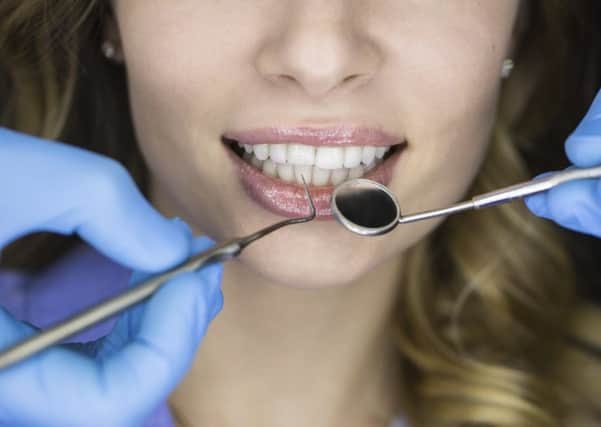Report card for dentists cuts use of antibiotics


Aberdeen University scientists found prescription rates fell by nearly 6 per cent when monthly reports were issued, after scrutinising the habits of more than 2,500 Scottish dentists.
This would equate to 20,000 fewer prescriptions if applied across the whole of Scotland.
Advertisement
Hide AdAdvertisement
Hide AdThe growing threat of antibiotic resistance has been described as a major public health crisis and could cause 10 million unnecessary deaths per year by 2050, experts warn.
Dentists prescribe around 10 per cent of antibiotics dispensed in community pharmacies, and these are often handed out inappropriately despite clear guidance, the study published in PLOS medicine journal states.
Professor Craig Ramsay, one of the authors from Aberdeen University, said: “Previous studies have found that, despite clear dental guidelines, dentists often prescribe antibiotics in the absence of clinical need.
“This study is a relatively low cost country-wide health intervention that could potentially help the entire healthcare profession address the increasing challenge of antimicrobial resistance.
“We have shown that fostering collaboration between research organisations and service delivery can be done efficiently to produce real improvement.”
Over 12 months, the dentists who were given these report cards saw a 5.7 per cent reduction in antibiotic prescriptions.
Dentists who received a written behaviour change message had an even greater reduction of 6.1 per cent.
More than four million antibiotic prescriptions were issued in Scotland in 2014, in spite of efforts to curb unnecessary prescribing as more common infections become resistant to medicines.
Advertisement
Hide AdAdvertisement
Hide AdProfessor Colin Garner, chief executive at the charity Antibiotic Research UK, said: “This is a further example of informing antibiotic prescribers of their prescribing rate, which has resulted in a behaviour shift.
“Our charity sees education of the public and professionals as one leg in the fight to tackle antibiotic resistance, with the other legs being development of new antibiotic therapies and patient support and information.
“Although the reduction in antibiotic prescribing was relatively small, this all helps in prolonging the life of our existing antibiotics whilst new ones are developed. The less we use antibiotics, the less likely resistance will arise: this paper shows that providing antibiotic information to prescribers helps in this battle.”
Former chancellor George Osborne warned that the advent of antimicrobial resistance would become a greater threat to mankind than cancer if it continues unchecked, during a speech to the International Monetary Fund earlier this year.